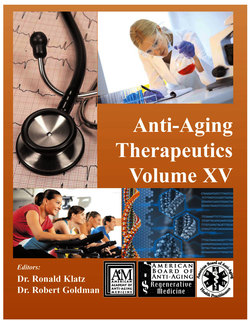Читать книгу Anti-Aging Therapeutics Volume XV - A4M American Academy - Страница 16
На сайте Литреса книга снята с продажи.
Attacks on Compounding Pharmacies
ОглавлениеCompounding by pharmacists has been a foundational aspect of the practice of pharmacy. While today the majority of prescription medication is mass-produced by pharmaceutical companies, many patients require custom-made preparations that are prescribed by their physician and compounded by a trained pharmacist.
Compounding pharmacies are strictly regulated the respective state boards of pharmacy. Presently, U.S. Senate Bill S.959 would transfer control of compounding pharmacies to the Food and Drug Administration (FDA). This legislation would give sole authority of the FDA to determine what medications could be used in the practice of compounding pharmacy. Knowing its long time antipathy to bio-identical hormones, you can rest assured that the FDA would inevitably ban compounded bio-identical hormones. This has been its plan since the late 1980s. A series of federal court cases has prevented this. Despite this pending legislation, courts have repeatedly upheld pharmacists’ rights to compound despite repeated attempts by the FDA to challenge the activity. In May 2006, a U.S. District court judge ruled that the compounding of ingredients to create a customized medication in accordance with a valid prescription does not create a new drug subject to the FDA’s approval process (see Medical Center Pharmacy et al. v. Gonzales et al.). Additionally, the U.S. Supreme Court has held as unconstitutional FDA’s repeated attempts to regulate pharmacist compounding.
